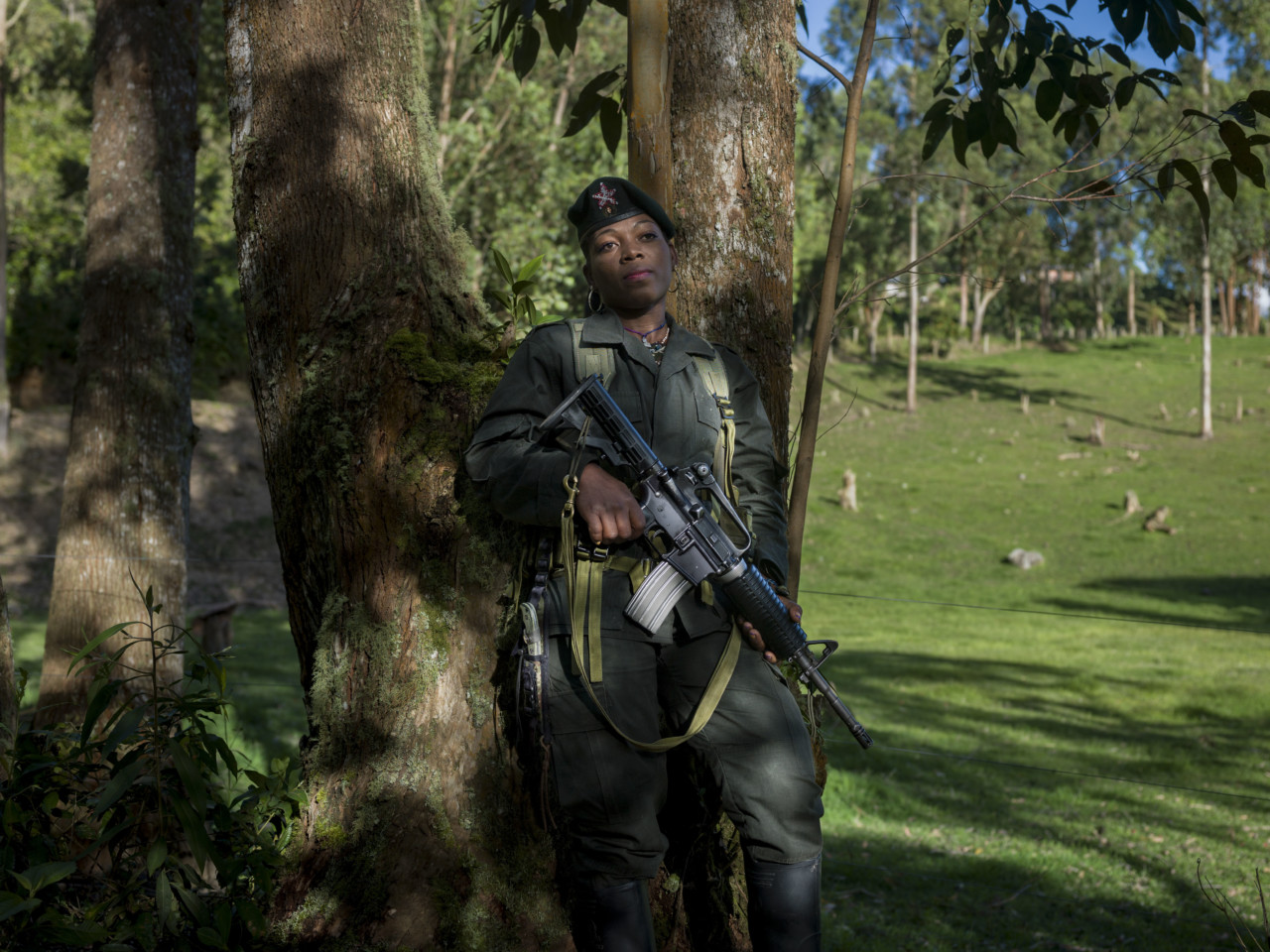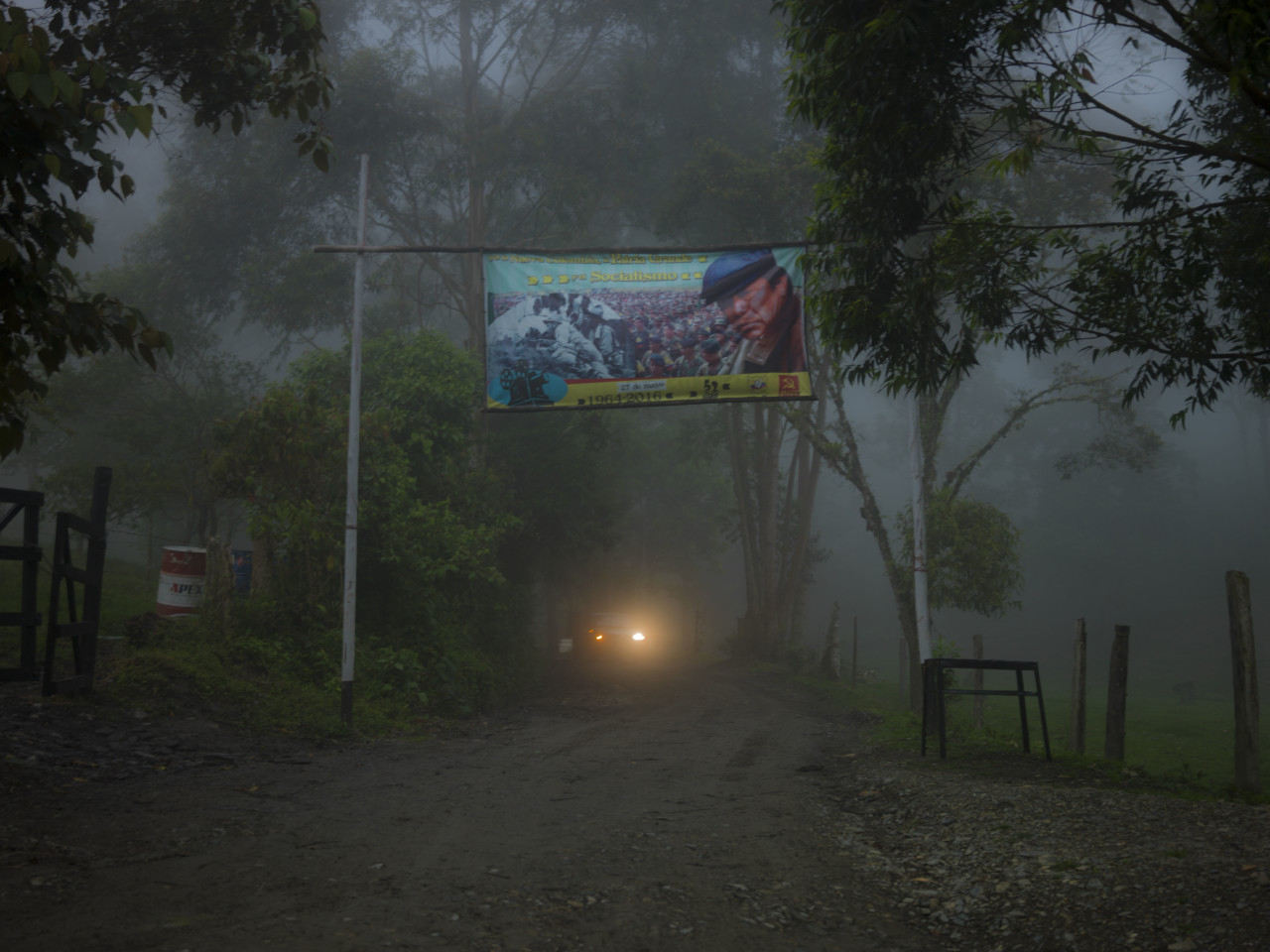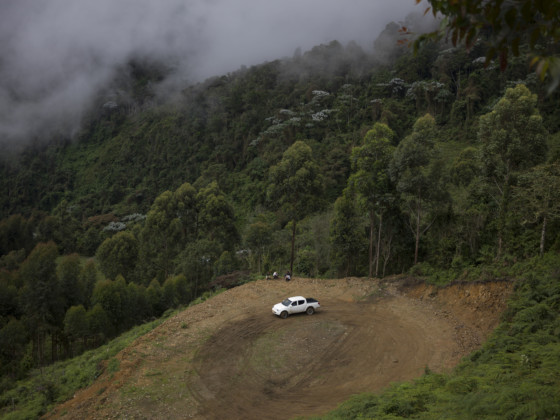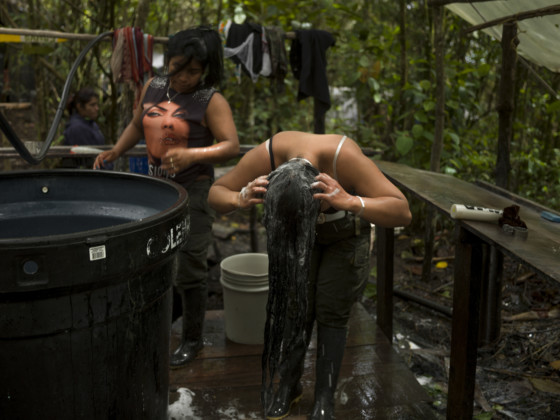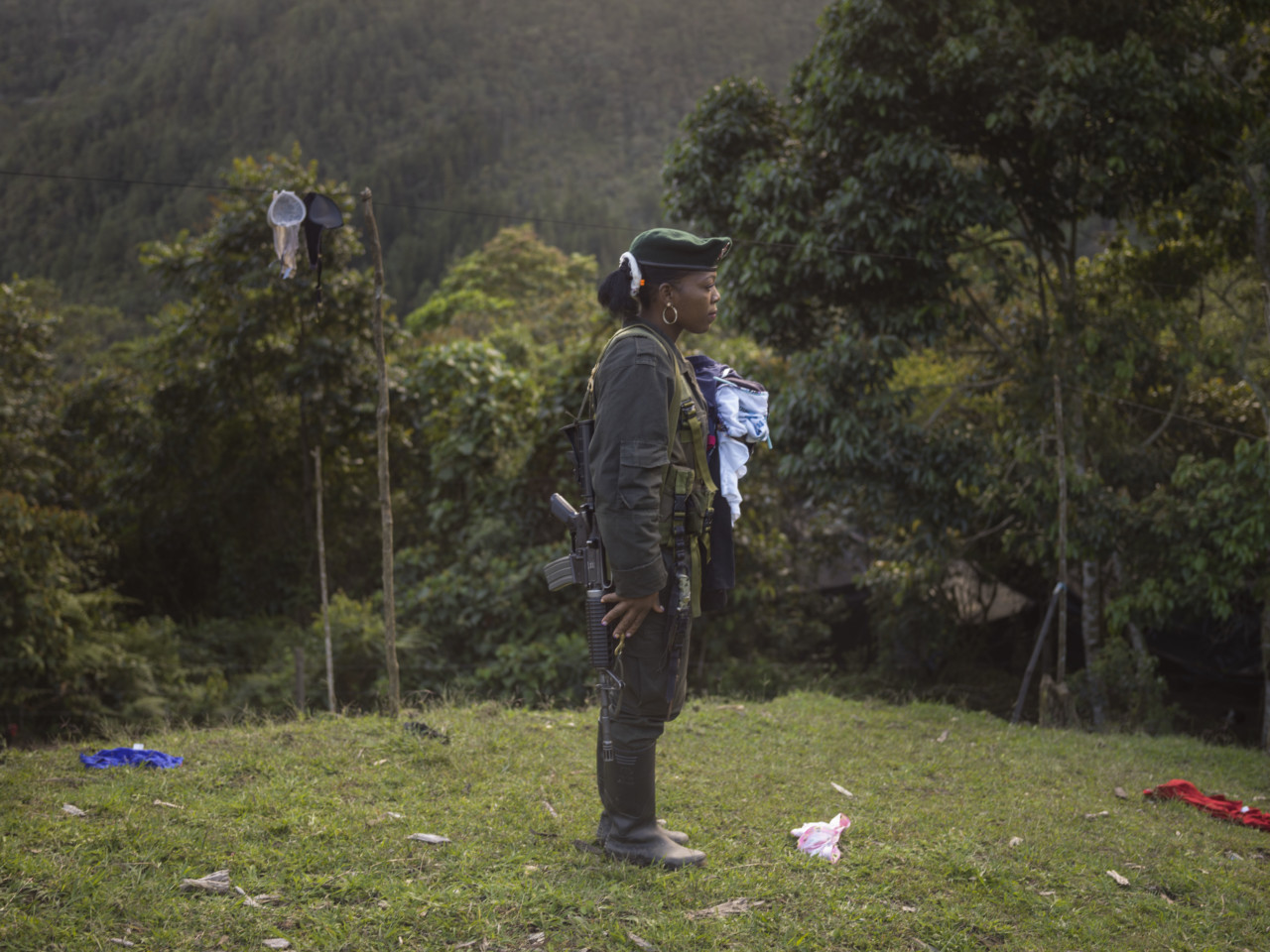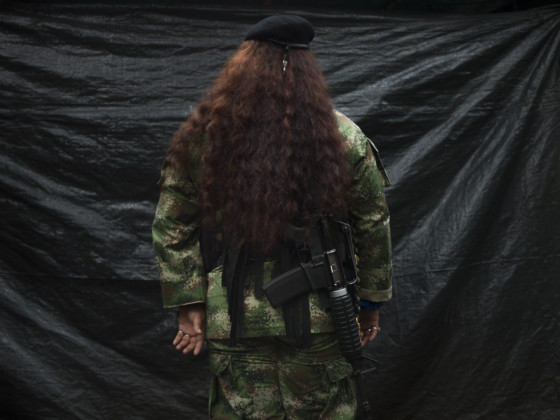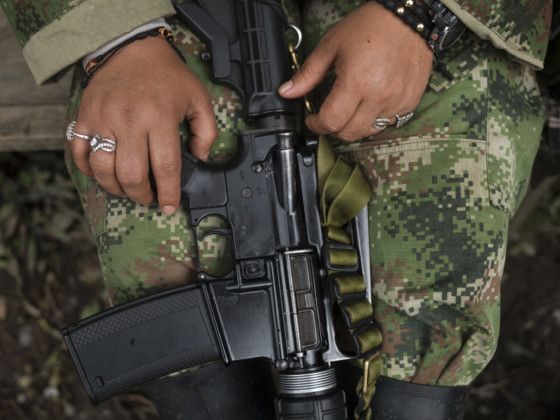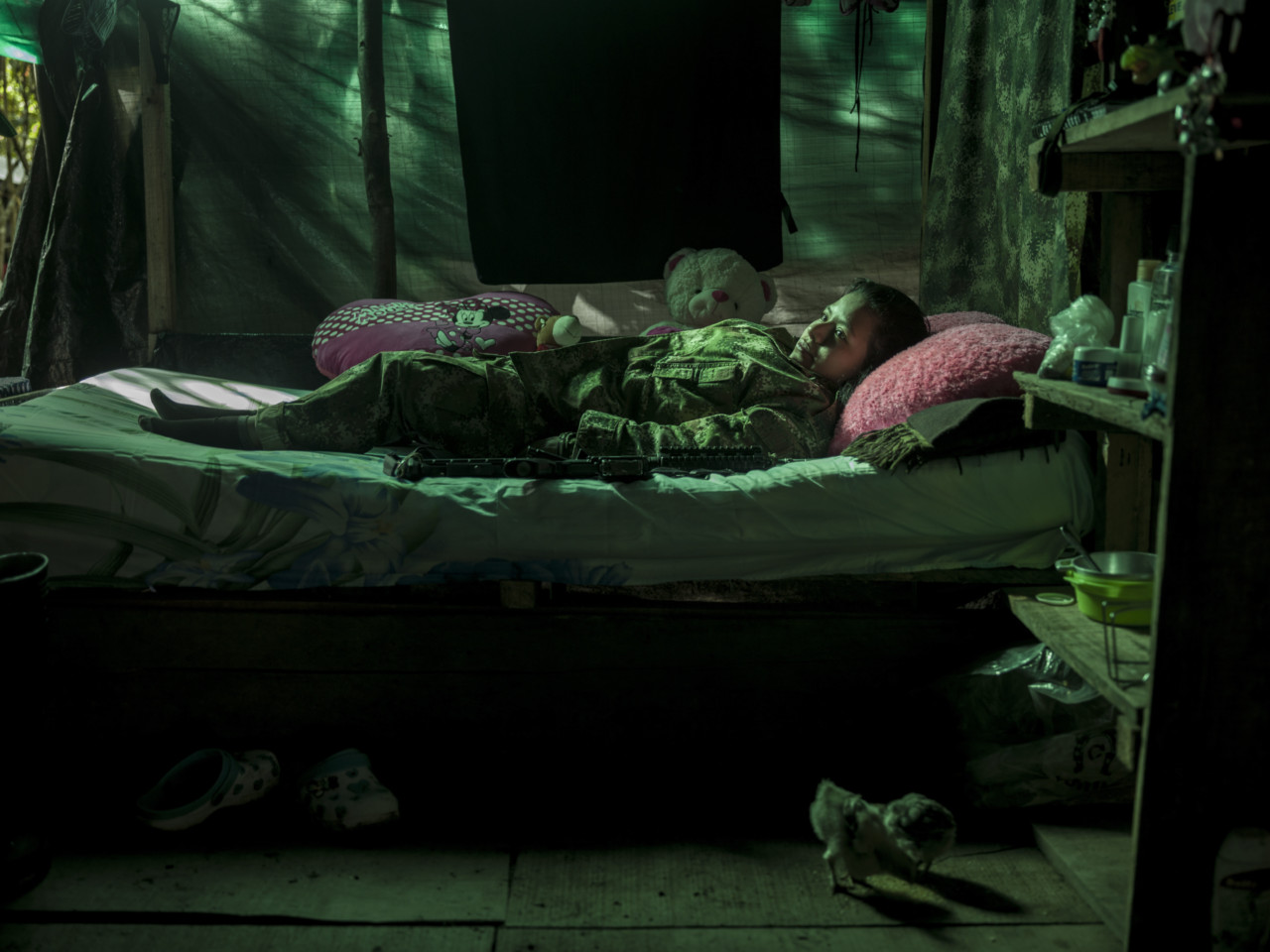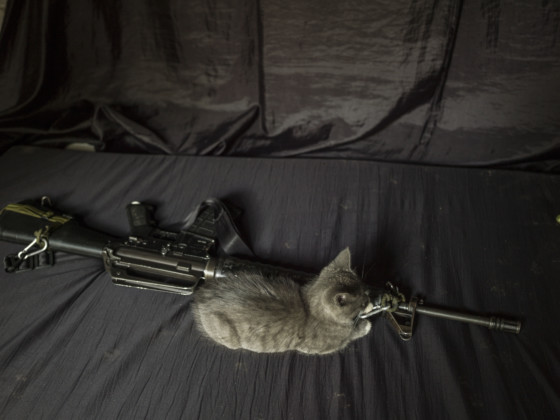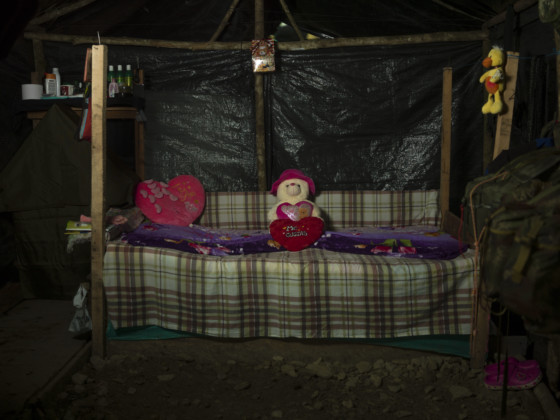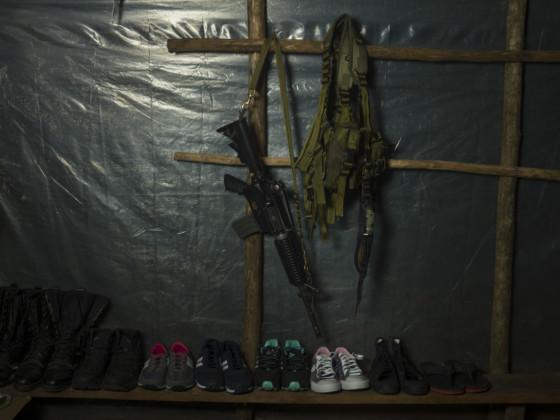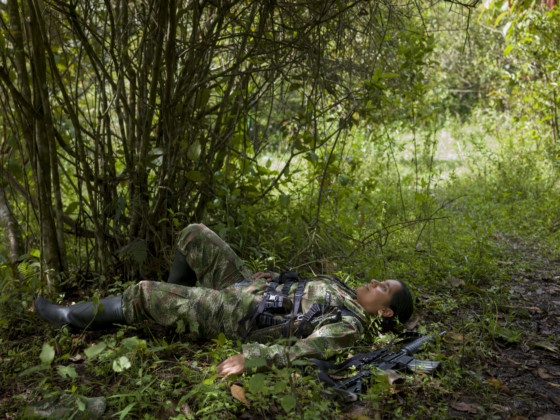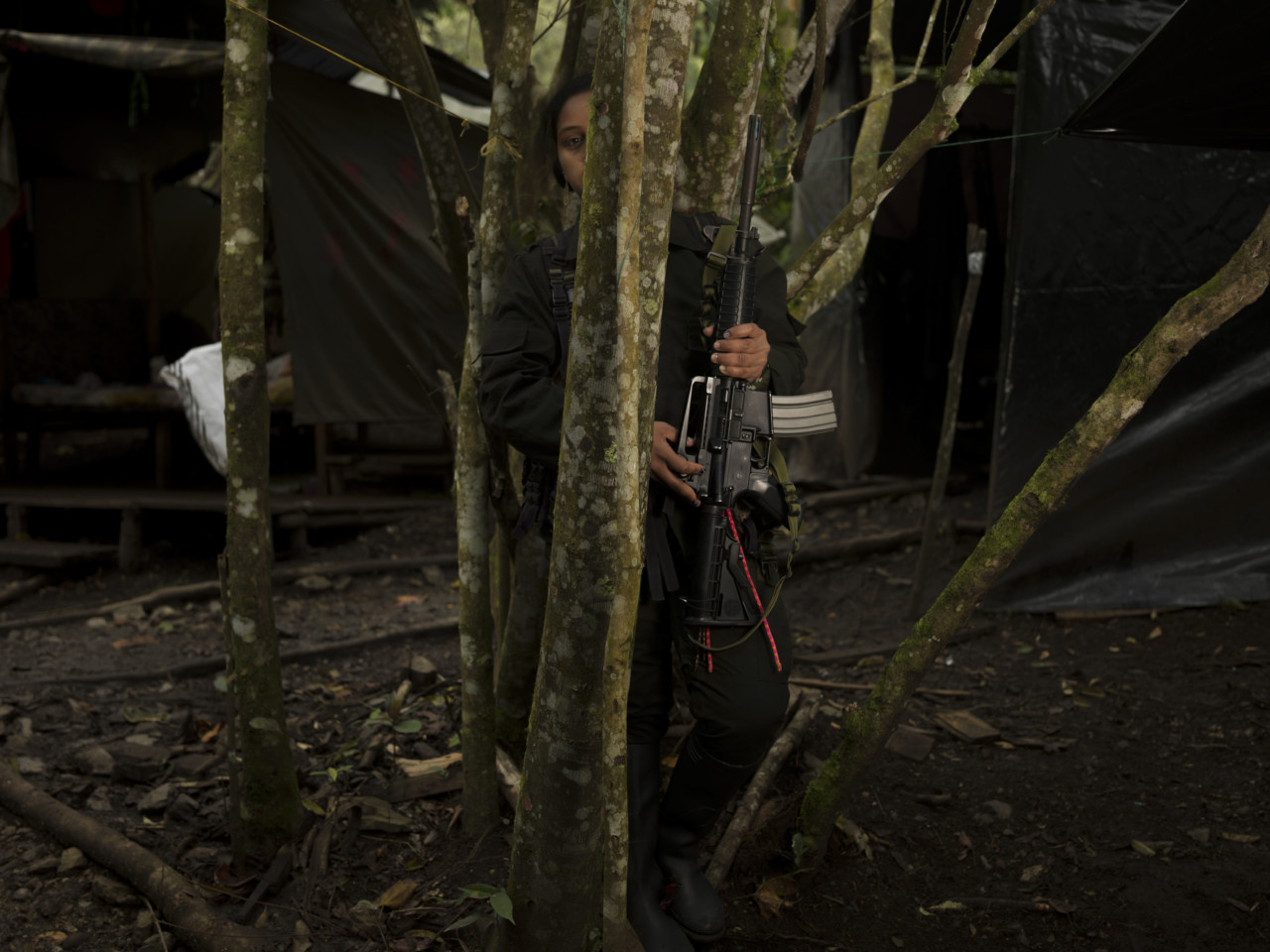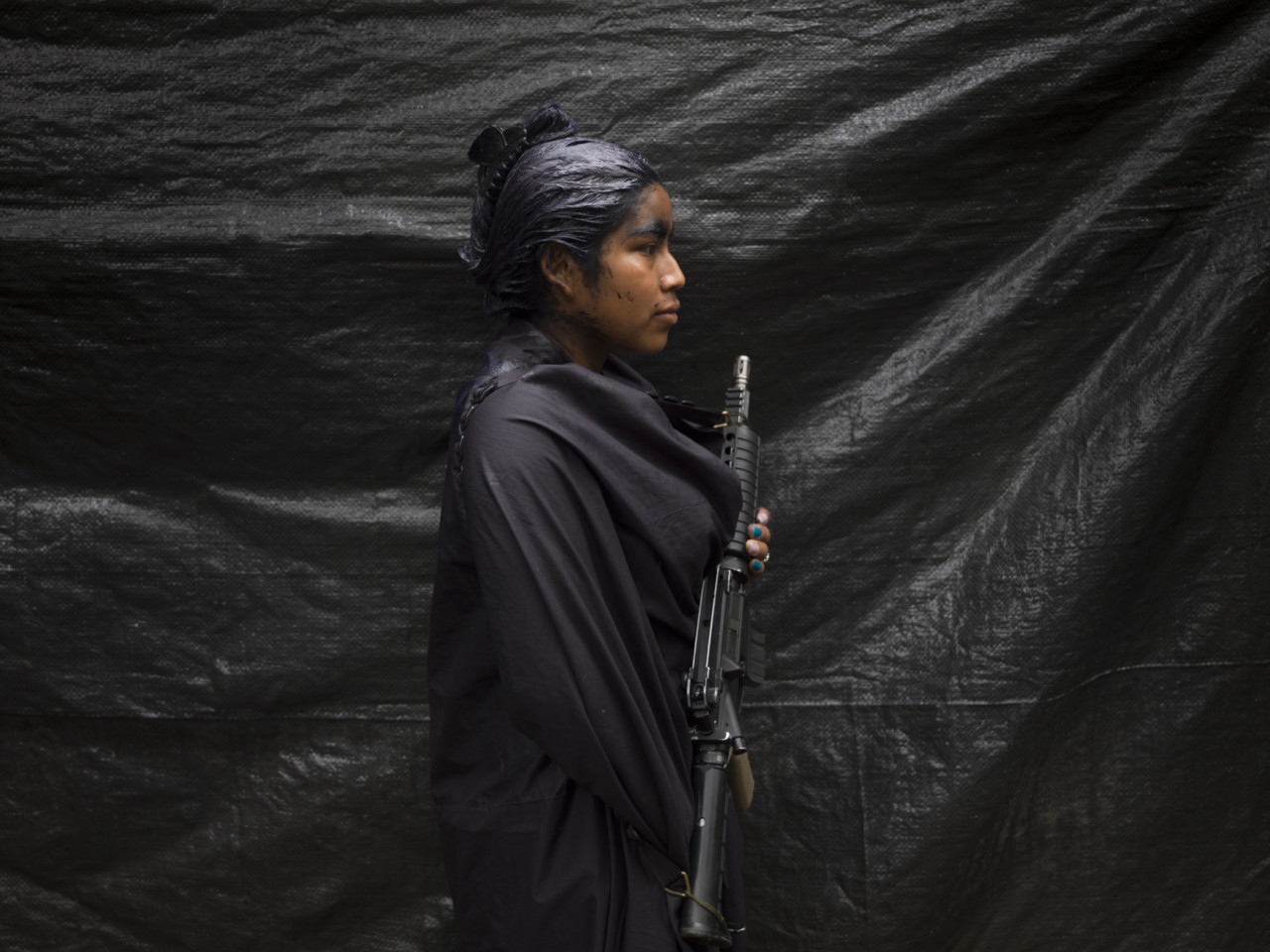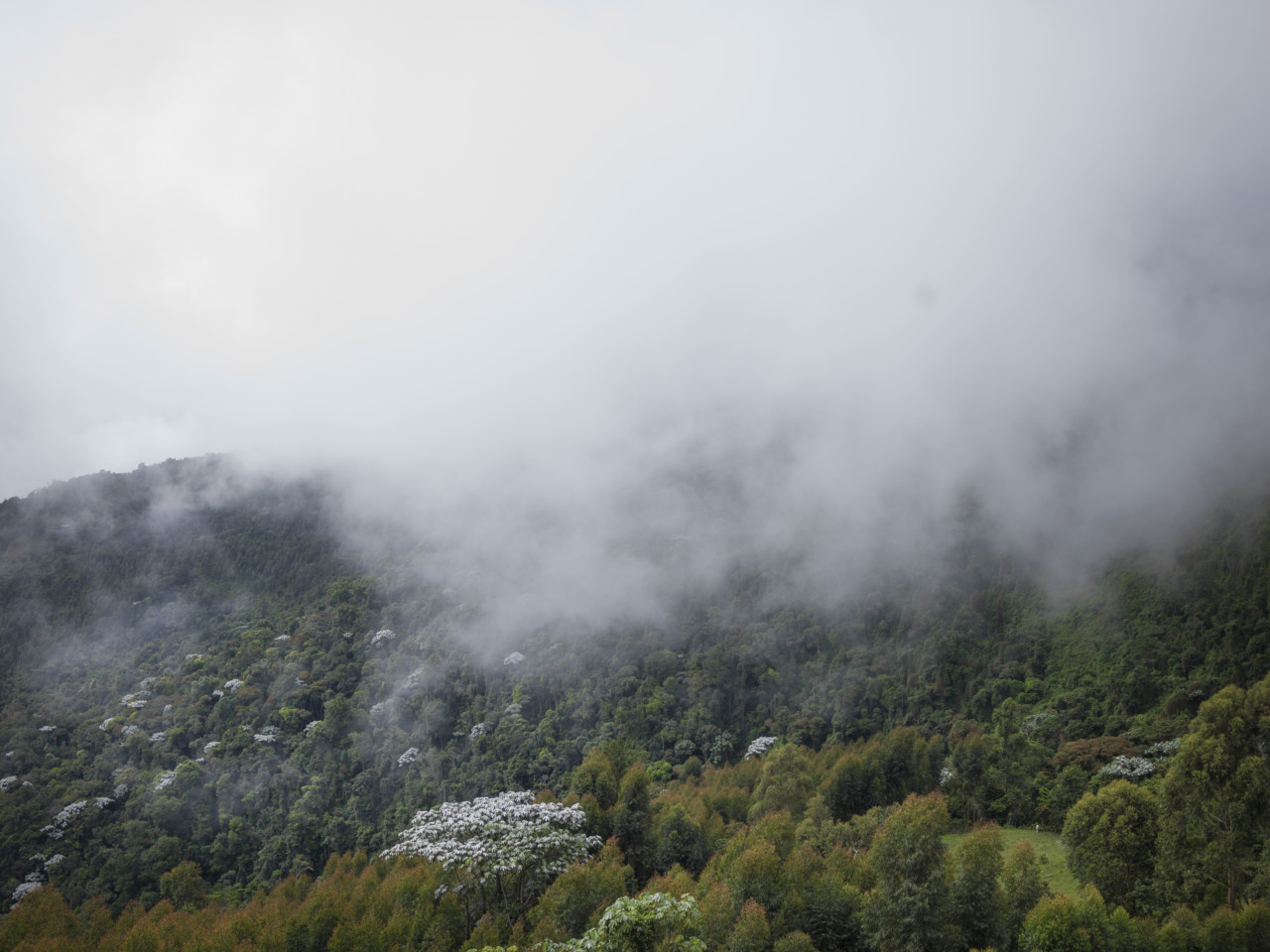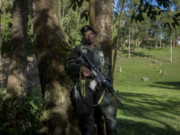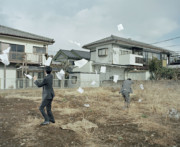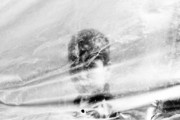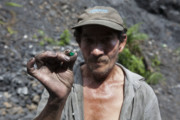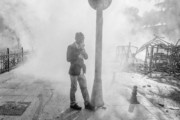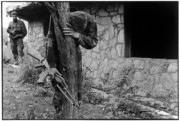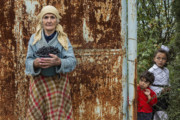Women Fighters of the FARC
Newsha Tavakolian captures the nuances of life for the guerrilla women of the Revolutionary Armed Forces of Colombia as they prepare to leave the jungle and integrate into society
“For a long time, I’ve wanted to go to Colombia to photograph the Women FARC Guerillas there,” says Magnum Nominee Newsha Tavakolian, whose interest in women fighters was piqued by Svetlana Alexievich’s book War’s Unwomanly Face. “I think we all think about these women as a people who kill others but at the same time, they are the victims themselves,” says the photographer.
After 50 years of clandestine warfare, peace in Colombia comes with a plan to integrate guerrillas from the Revolutionary Armed Forces of Colombia (Spanish: Fuerzas Armadas Revolucionarias de Colombia) into Colombian society. To enable this, the government is providing houses for former guerillas, and weekly visits from teachers to help prepare the women, many of whom have lived in the jungle for most of their lives, for contemporary Colombian life. “Many of them have never experienced a decent normal life, and the effect of what they’ve been through for years in jungles of Colombia will always hunt them, but the human capability to adjust may help them to recover and find a normal life,” says Tavakolian.
“I was completely aware that this is my only chance to be there and photograph these women fighters living in the jungles. For me, it was important to document them and their lives as they were at that time. I wanted to photograph them before they become ‘normal citizens’ which I think some of them will struggle to ever be.”
Through her visit to the FARC guerrillas, Tavakolian aimed to create a fuller picture of the motivation and circumstances that led to women becoming fighters, and understand, preemptively, some of the problems they are likely to face as they return to Colombian society.
"their reasons and motivations for joining FARC were mostly not their political ideology but the chance to run away from poverty and many other things"
- Newsha Tavakolian
“I think the biggest dilemma that they will face in the future is that their reasons and motivations for joining the FARC were mostly not their political ideology but the chance to run away from poverty and many other things, and now, after years, they are going back to what they ran away from,” she says.
Tavakolian’s images, presented here with testimony from the women she met, paint a portrait of what it has been like to be a woman fighter living in the Colombian jungle. The work presents the nuanced reasons why the women joined and portrays some hope, melancholy and tangible anxiety about the future. Tokens of the life of violence they’ve known is evident through stacks of guns and ammunition, and glimpses of a potential civilian future make an appearance through the keeping of pets – something that was not previously allowed in the FARC.
"I’m in love with birds, they are the most beautiful things in the world - they are free"
- Yury, 24
Yury, 24, who joined the FARC five years ago
” I joined the FARC because I was tired of injustice; I came here to destroy inequality and injustice in society. I wanted to fight for my family and all the poor people like them. My first night here in the FARC I was so ready because I had thought about it for two years. When I told my mother I was leaving she started crying and tried to stop me, but she couldn’t. When we are back in the city after the peace deal I want to become a dentist but first I have to finish elementary school. I have eight siblings and I’m worried for our lives after we leave here to go to the city because paramilitary can kill me and my family any time. Everything here is arranged for me, I have food and clothing and everything else available, but now I have to take care of myself. I’m in love with birds, they are the most beautiful things in the world – they are free.”
"I didn’t cry, a fighter never cries"
- Marina, 30
Marina, 30 years old
“I joined the FARC 18 years ago. I’m from Meta, which is a very dangerous area. I would always be scared of paramilitary and also the FARC. One night I ran away from home to just go and dance with my friends. When we arrived, the club was full of people with guns in their hands. They were talking to civilians, and a woman with a gun was telling another woman about how she feels safe as a woman in the FARC. I was 13-years-old that night. The next day, I wanted to feel safe like that woman from the previous night. The day after, one of my sisters was hitting my youngest brother very violently and I hit back at my sister to defend my brother, and because of all the yelling and screaming from our house the FARC broke in to stop us from killing each other. That same day I left with them.
We were six kids in one house with no father, and our mother was never home. When I went to their base in jungle, the first thing I saw were two boys who had been missing from our village for many years. That gave me a warm feeling and I felt safe. When I was fighting and shooting I always had double feelings: happiness for being alive and sadness for the person I was killing, because all of us here are just soldiers fighting each other, because all of us are poor and have no future. And That’s the reason we are fighting with each other. After 18 years when I saw my mother and siblings, I just looked at them, I didn’t cry, a fighter never cries.”
"all of us here are just soldiers fighting each other, because all of us are poor and have no future"
- Marina
"I'm scared for my future"
- Andrea, 23
Andrea, 23, who joined the FARC 8 years ago when she was 16
“My father was also a FARC guerrilla. When I was 11 he was killed, after that my mother took all her children to Cali and we started working on a land as farmers. While we were working, the FARC guerrillas were there most of the time and I was always wondering if I should join them along with my sister. So one day I made my decision and left the house. Since I was a small girl, my commander did not want me to be in the front line when we went into battle and so my task was to take care of the other commanders in the back.
All my belongings from these past eight years can be packed into just one small backpack because we had to run away all the time and we didn’t have time to pack and we always had to be ready. I lost my best friend in an attack. I wish she was here with me. I’m scared for my future, because of the paramilitary who want to kill us.”
"All these years I repeatedly dreamt that the army attacked me and started shooting me with a machine gun"
- Diana, 20
Diana, 20, who joined the FARC when she was 13 years old
“My father was also a member of the FARC Army. He was arrested by the Colombian army and he went to prison. The FARC took care of me, my mother and brother. I always hated studying, that’s why I made a decision to join the other guerrillas. At the age of seven I started working in a farm, it was a very tough life for me. To be honest, being a guerrilla was not much different because of the difficult childhood that I had. I fought in wars, for many days and nights, I was shooting in every direction and I don’t know the number of people I’ve killed.
One week after I joined the guerrillas I started fighting – I was 13. I’m scared to go back to normal life. Maybe if I start living a normal life I will choose to be a nurse as we learnt how to treat a patient in the camp. All these years I repeatedly dreamt that the army attacked me and started shooting me with a machine gun, I was running in dirty water and at the end I would get killed. A friend who knows about dream interpretation told me that having a dream where there is dirty water means sickness. In the past few years I was shot two times and I almost died.”
"I felt so powerful, maybe for the first time of my life"
- Lorena, 21
Lorena, 21
“I joined the group six years ago when I was 15. When I was a kid I was really scared of the FARC because of the media and the radio which was in our kitchen and my mother used to listen to it. On the radio they were always telling scary stories about the FARC, stories like how they rape young girls. One day I was sitting in my house and a FARC guerrilla was passing and he saw how scared I was because of him. He came close to me and asked: ‘Are you scared of me?’ I answered: ‘Yes! Because I heard horrible things about the Farc on the radio.’ The guy answered, ‘Enemies won’t talk good about each other,’ and he left. He really touched me with his answer and the second time I saw him I asked him to take me with him.
When I started to get to know their ideology I fell in love with the idea of equality. On my first year I was really scared of man-to-man combat but after years they sent me to battle. When I shot the first bullet all my fear itself left me like a bullet. Since then I’m not scared of fighting anymore. In the past year I became a member of the special forces. I remember the time that we attacked Suarez in Cauca. It was a really difficult battle. I was wondering all the time that if I die now my family will never find out what happened to me, but when I went back to our base in the jungle I remembered that I felt so powerful, maybe for the first time of my life. I wanted to go back to fight right away. I was always one of the first ones who asked the commander to send me to fight. Now I’m learning how to deal with the civilians. For example, I was taught that I have to be polite with people and when I want to touch their stuff and go to their houses I have to ask them first. I come from a very poor family and my parents couldn’t feed us and my little sister was always hungry and we couldn’t go to school. After going back to the city I will miss my gun.”
"When I start my new life, I will have to start from scratch"
- Heidi, 21,
Heidi, 21, joined the FARC 5 years ago:
“When I start my new life, I will have to start from scratch. Now I want to change the color of my hair and my nails everyday, because when you are a woman fighter and living in the jungle you don’t have time for these kinds of things, but we were washing ourselves every day to make sure we were clean. When you are a woman with a gun, nothing inside you changes as a woman, you still want to look good, but sometimes the situation does not allow you to do it. I have fear for my future because there are so many things are uncertain for me.”


